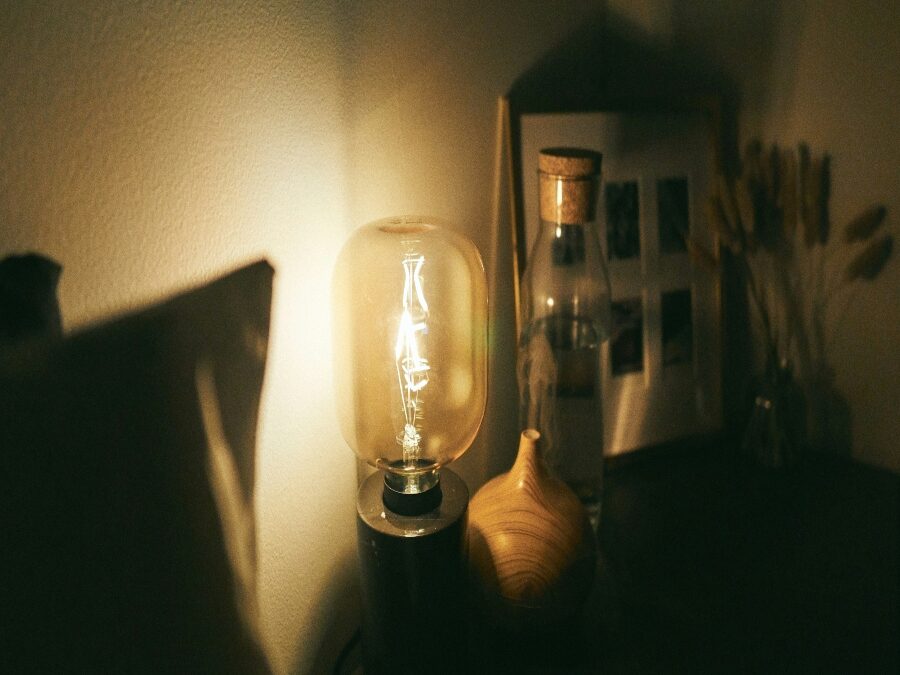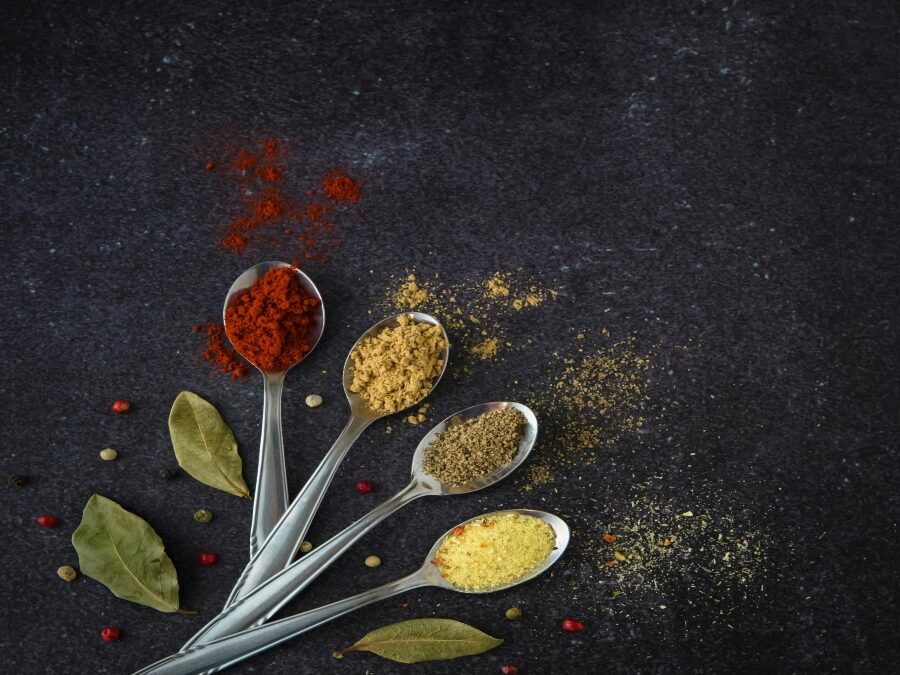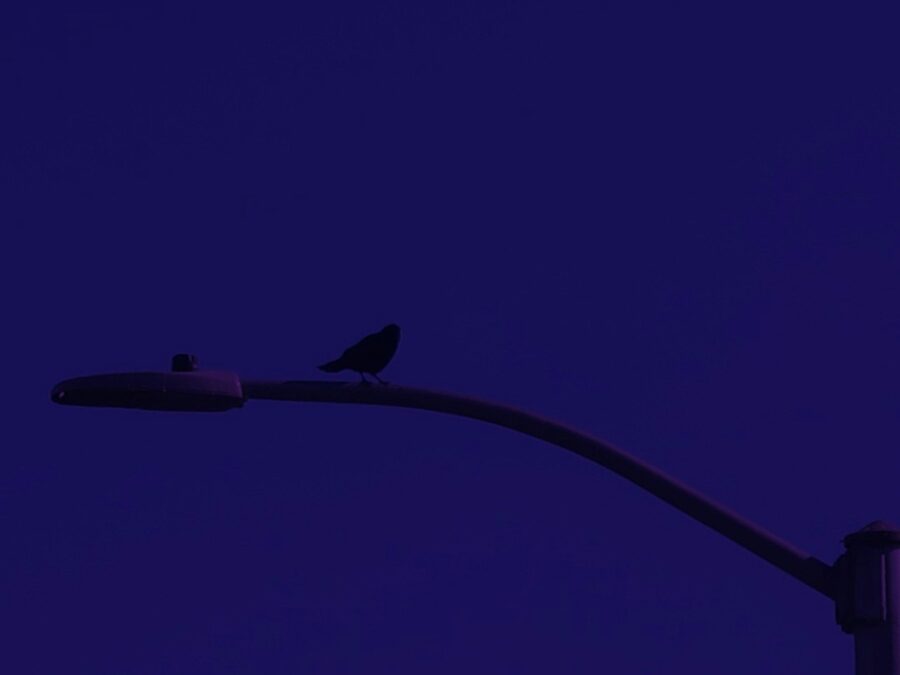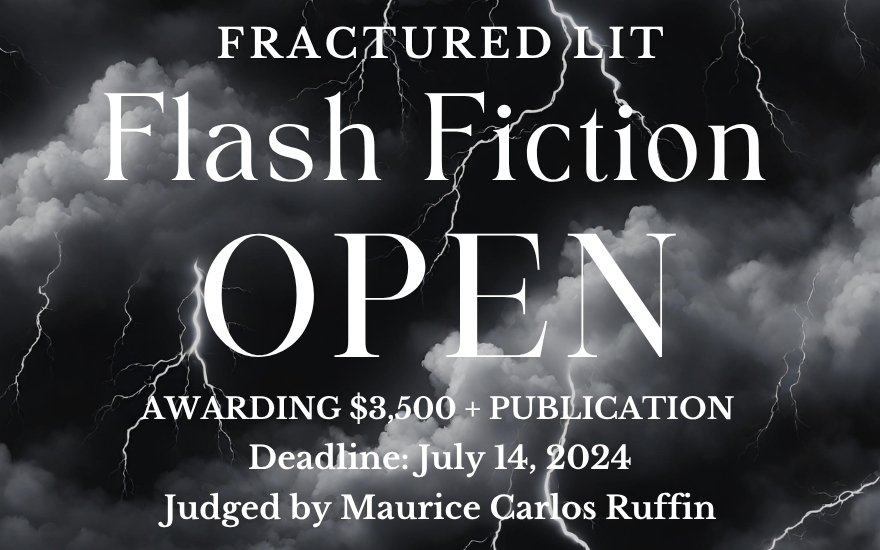
by Travis Flatt | Jun 3, 2024 | flash fiction
My daughter’s walking me through her sandcastle. She brings me in through the garage weight room, which opens up into a two-story climbing wall.
Before I can test that out, my wife, Anna, yells for me to come see the downstairs bathroom. Kaylee has crafted one of those Japanese toilets, a luxury mirror, and towel warmers. She’s built a sectional in the living room with built-in speakers across from the biggest flat-screen TV I’ve ever seen. I throw myself down, sprawl out, and pat a cushion. “Alright. Show me this Three Body Problem,” I say, picking up the remote from the glass coffee table.
She runs over and tugs on my wrist. “No—see upstairs before the tide comes in.”
Upstairs, I find Anna wandering in our bedroom’s walk-in closet, grinning and rubbing fuzzy sweater sleeves. I watch the waves from the window.
“Guys?” Kaylee says. We move on.
She’s left everything in her brother’s room the same, untouched, just like our real house back in Miami. Dusty magazines pile on the bedside table, and an empty Kleenex box sits on the carpet. The bed’s partially made. I think Kaylee sometimes naps there but always returns the bedclothes to this condition.
Anna goes no deeper than the door but soon calls me to check out the man cave.
From a wall hangs a row of electric guitars, mostly ‘60s Stratocasters. Here I tear up; Kaylee’s given me my dream guitars. I never realized she paid attention to my yammering. Alone on a stand sits Brayden’s Jazz bass.
I retreat to the hall bathroom and splash my face in the sink.
“Dad, come play Mario Kart,” Kaylee shouts. Anna meets me outside my daughter’s bedroom, where the kid sits on her bed, kicking her feet, controller in hand, watching the game boot up on a microwave-sized box TV.
Anna’s eyes are red. “Let’s go downtown and play mini golf.”
“One race,” I say. “Play with us?”
Anna sighs through her nose and straightens a family portrait as she walks for the stairs. “I’m reading my book.”
Kaylee’s hung a Nirvana Nevermind poster on her wall. She’s lined the top shelf of her bookcase with Lego Star Wars spaceships and the rest with short, thick Japanese comic books. I sweep a dozen smelly hoodies off her bed to make room to sit.
We’re five races in when the house slumps toward the door, toward the sea.
The Lego ships rattle.
“No,” Kaylee says and bears down on her controller. She leans closer to the TV, away from the bookshelf. We’re on the last lap, and she blasts me off the track with a red turtle shell.
“Time,” I say and switch the TV dead.
She spikes her controller off the screen, something she’d never do at our real house, and a corner of the TV bursts into brown chunks and dust. “I was winning,” she cries and runs to the hall.
I find her in her brother’s room, under the covers. The house slouches back the other way, toward the beach.
Anna’s calling from the stairs, “You all, someone’s going to get hurt—”
The ceiling fan loosens from the ceiling, exposing an inch of wiring.
“Alright, Kaylee,” I say.
“I’m asleep,” she says.
I scoop Kaylee out of the bed. She pulls her brother’s navy comforter along with her. We walk down the unsteady stairs, flakes of ceiling raining down. Anna meets us at the foyer. We stand on the beach and watch the house melt.
Kaylee, wrapped in her brother’s crumbling comforter, wades ankle-deep into the lapping ocean to kick around in the wreckage. The last of the comforter falls away to mush. She glistens, alone in her red swimsuit, lifts a foot to examine the eroded remains of the Kleenex box, pinched between her toes.

by Tara Isabel Zambrano | May 30, 2024 | flash fiction
After she gave birth, she could hardly sleep because she was either leaking milk or blood, or both at the same time or because she heard every sound the baby made—the widening of his thin lips while dreaming of a past life to his little fingers opening from a fist releasing his fate, or blinking his eyes, adjusting to the light.
She couldn’t fall asleep, so she fed the baby multiple times even when he was full, cross-eyed watching her face, scratching her chest with his uneven nails, or pushing her gorged nipple away with his big toe. Whether it was eyepatches, chamomile tea before bedtime or whether it was feet soaked in Epsom salt or massaging her soles with mustard oil or warm milk with turmeric or ASMR videos on YouTube, whether it was watching her baby in and out of dreams, inhaling his milk breath, his fingers wrapped around her pinky pulling her to another universe—nothing worked.
Past midnight, the sleep in her eyes was replaced by the blinking microwave clock to be set correctly someday. Sleep escaped like the stale smell of oil when she opened the packaged chana masala or spinach paneer or mushroom peas her husband brought during her pregnancy, sleep sizzled like bountiful butter in a hot pan to thaw two frozen naans curled at the edges, slowly flattening in heat, sleep became the couch where she stretched her swollen legs before it disappeared in her stubborn, dead-white stretchmarks. Sleep flashed like ads on the television screen during the rerun of Friends with the baby in her arms, baby on a wide cushion on the floor—giggling, drooling, hiccupping, wailing as if remembering something terrible—baby in the blanket with her in the guestroom, baby in the darkened bedroom after her husband had left for work, baby in the living room with all the windows open—cicadas throbbing, a breeze butting the bougainvillea up against the windowpane and tickling hollows in her feet as she stared at the wall color, then the ceiling fan and the pattern on the curtains making sure she was in her home and not someone else’s. Sleep snuggled like the warm washcloth from the dryer in between her fingers, sleep weighed on her eyelids like dishes in the sink and another overstuffed trash bag waiting to be picked up, on her spine jolting into a bright pain like the shock from sting rays from sitting against the hard headboard, from walking and standing so perfectly still—holding a bottle of milk or a wipe when her husband returned from work, he was spooked when he spotted her. She tried to be polite, asking him about his day, her fingertips seeking out his white-collar weariness, her face smothered with an expression Help me.
You, ok? He asked when she looked at him, shook with exhaustion. I want a bath, was all she could manage. Of course, he said and picked up the baby from the bassinet. By the time she was done because the water was no longer balmy and the bubbles had shrunk to the bottom of the tub, he had passed out with the baby asleep in his arms, and she lay on downy-light-scented-white-lavender-sheet but the awareness of if she fed the baby before he slept or did her husband changed his diaper, if she should use the restroom once more, plummeted its roots throughout her with a thousand feelers and watching both of them—Oh so peaceful, she sobbed.
To avoid making any sound, she tiptoed outside the room, outside the house, and sat on the front steps listening to the clatter of cars without mufflers rising and dying on the nearby state highway, night songs of frogs waiting for rain, a gentle whirring of birds in the branches of the oak licked by the flickering warp of orange streetlamps, their shadows shaking loose in her eyes. A dog yapped from time to time inside a house down the street—a long corridor of closed doors she wished she knocked on one and someone invited her in, opened her fist and released the baby’s pacifier on the carpet she didn’t realize she carried with her, and quietly led her to a bed skirted in viscous black air away from the mottled white of the moon and blushing bang of the dawn. She lay flat as if by a road roller, her hamstrings loose, her chest collapsing and rising into long waves of her breathing and she slept and slept, floating through a wormhole of dreams, wanting to wake up and pick the pacifier.

by Lydia Gwyn | May 28, 2024 | micro
My face turns into my aunt’s face as I age. Now we know what she would have looked like at 35, 37, 40, 42. Lost in a gaze. Cigarette in hand, land of left-handed thoughts in her brain. Keep speaking while I rest a while in here, leaning back into the carseat of my memories. Days to nights, years to years, a Ferris wheel, an album backwards, woman to girl. Tennessee road at night, curves and headlights, deer waiting in the collard-green landscape. Light caught in marbles. Light caught in cotton. Strange light in the sparkle of asphalt. When a deer entered the road in front of us, and I screamed, my aunt laughed. It was the kind of breathless laugh where speech won’t form. She laughed until she was crying. My little brother was in the backseat, also laughing. Within six years, both of them would be gone. But that night, we returned to her home, to the suburb of the college town, and sat on her trailer floor, talking about our lives at school and how we’d like to skip a day or two. We helped her unpack boxes, and I read aloud from a Dear Abby book I found. A woman complained of her neighbors. A woman complained of her adopted daughter. In the lives of these women, no one was grateful, though they all said they should be. It was nice inside my aunt’s home. New and big and full of her things. But the floors were so hollow. My footsteps felt flimsy with all that empty space beneath.

by Suchi Rudra | May 23, 2024 | flash fiction
Clouds like spores riding the gusts of wind, still raining, no beach today. We’re lying on the couch together, heads on opposite ends, my smooth legs sliding over his brittle, hairy shins. He wants to feed me yogurt, but I can’t reach. I stick my tongue out, then open my mouth wide. It must be 2 pm, but we stayed up late, slowly sucking down the long wide noodles with perfect tomatoes, neon bright basil, drinking from three different bottles of wine, just like that restaurant, that one time, remember, our friends who were with us, before the invasion, linen napkins for patting our lips over the white tablecloth, one stout candle in the center, our laughter killed the flame. They were the friends we never talked about anymore unless we got drunk. It took us three bottles of wine to bring them back to life. I should’ve cried, he could’ve covered his eyes that were never not wide. Instead, we drank more and made up songs about our lost friends. We wondered if any shop was open past midnight in this tiny Mediterranean village where we could buy more wine. He played air guitar, I played air flute, and we were both quite good. I wished I had photos to prove it.
After he gave up feeding me yogurt and finished it himself because I refused to sit up, the call came. He answered his phone with a lazy hello, and I cleared my throat, closed my eyes for some reason. When he remained silent, I opened one eye, tilted my head so I could locate his expression. There were many things that could have been wrong, burning buildings, exploding schools, destroyed bridges, dead friends. Very common things. But this remote island village we had discovered with a very thorough online map search had since day one been giving a sense of having slid into a new world where new things could happen, new things that created new actions and reactions. With both eyes open, I watched the waxy skin of his forehead, the lack of throbbing pulse at his neck.
Then it was over. He pocketed the phone, tight-smiled, eyes on the door.
Want some more pasta?
Who was it?
Cold call. Selling something.
What?
Not sure.
Oh.
I’m starving.
You just had my yogurt.
Let’s get pizza.
I can’t move.
I’ll get it.
The biggest one.
A lover, it was his lover. What else do people hide most? I would have done the same, but he was a better liar than me. He took his phone with him when he left, so I couldn’t check the number. I crawled across the couch to put my head where his had been, the cushion still felt warm. I lay my head over the ghost of his, wondering what I would do if he never came back. He just went out for cigarettes and never returned, I’d heard that kind of story before, who hadn’t. I tried to listen for the caller’s words in the air where his ear had been, words that had drifted to the floor. If there were something left, I would feel it. It was why we were here, to summon something out of nothing, like when people clawed their way out of pits, escaped a cult, survived a prison camp, outlasted a war.
I closed my eyes, took a deep breath, tried to be as quiet as I would be if I were dead. I heard footsteps in the hallway, a door shutting carefully far away. The rain hadn’t let up, he was going to be wet, the pizza too.
There was that faint ringing in my ears again, or maybe it was just in one ear. Like after a loud concert, after fireworks that aren’t fireworks. The ringing had started back home, after that first night, but just to me, not him. Who are you? I asked the room. The ringing went away.
The flight back was tomorrow, but I was waiting to tell him that I, we could not go back, should not. I went to the bedroom and threw a couple of things into the small suitcase we shared to make it look like I was getting ready to return to the place that used to be home. I pulled on loose jeans over my bikini and brushed my hair slowly, watching the space of the mirror as if there was nothing in it. There were three knocks at the door, not our usual secret knock.
Who are you? I called out, throwing the wooden brush onto the bed. My stomach growled.
The voice replying was muffled, unfamiliar. I pictured him in disguise. He hated Halloween.
Maybe it was his lover; she had tracked him down. I undid the bolt and swung open the door to deal with my future. His body stood before me in a black shirt, camouflage pants, a black ski mask over his head. It could be anyone’s head, but his eyes are still his eyes, and I wonder who is really inside.
-We have to go back, said the voice and eyes, and I stepped closer toward him to feel for lies.
-But tomorrow?
-We are going. No more of this.
Four laughters braided together, lips patted over candlelight. A last supper before our roads diverged; we escaped from home; they remained, never heard from again.
I do not hear him follow me back inside, to the bedroom. Something falls softly on the bed beside me. His breath comes quickly, on my neck. On the unmade bed is a folded uniform, same as his. He upturns my hand then goes to the living room, a chair scrapes across the floor, he is waiting. Now, there is only me and a cold gun in my palm that I place on the bed beside the brush. I take everything off, my back to the mirror, and I wait before changing because it’s the last time I can.

by Caroline Beuley | May 20, 2024 | flash fiction
When I grew breasts, I stopped taking the bus to school. Instead I walked along the edge of the wetlands that protruded like a dank finger between my home and school. It was seven and a half times longer than the walk to the bus stop, but it was safer to be alone. Although, Katie was usually there too. Most mornings we were each alone in the marsh, together.
I had to leave early to arrive on-time. I didn’t mind. I was happy to leave my house, my covetous mother, the way her eyes excoriated my soft, new curves, as if she could gouge them away.
Our home was on the right side of the finger, just below the knuckle, and school was on the left side, halfway down the nail. There was no cutting through the marsh, which deepened at unpredictable intervals. Even if I could’ve, there were too many Grimm tales in me to risk the full embrace of the woods, the creatures that lurked there. I kept the rumble of semi-trucks in earshot as I picked over the devouring ground.
It was spring, then, the wetlands, the overbright green of a toxic snake. Contrasting brown trunks, upright, or rotting in the water, created a crude chiaroscuro. Shadow and light. Dull and bright. Living and dead. Me and her.
Katie wore a red backpack, so it was easy to spot her in the gloaming. Last year, when she disappeared from her usual seat at the front of the bus, I thought she had dropped out. There had been rumors. A video. Some pictures.
“Trouble waiting to happen,” my mom had called her at a school volleyball game, sucking her teeth at Katie’s exposed sliver of stomach, the bounce of her breasts, as she dove for the ball. My older sister crouched at the net, in front of Katie, a plank to her plump.
“Trouble,” my stepfather agreed, his gaze lingering.
I crossed my arms over my chest.
“That kind of body is a liability,” Mom said, clapping for my sister.
Katie tapped a tree branch as she ducked under it, a football player heading out to the big game. Katie’s house was a few blocks up from mine. Each morning, five minutes into my walk, she would stride into the swamp ahead of me. She kept a militant schedule, as I did.
Today, she was singing. I caught snippets of her raspy voice over the shrieks of cicadas, the ambient noise of animate water. “My Prerogative,” Britney Spears. I hummed along. She slowed through a particularly muddy patch, and the distance between us shortened. I could have caught up with her. But I stopped, slinking behind a pin oak.
I liked to imagine she, too, had left the bus to avoid the eyes, the hands, the popcorn, and the pencil erasers tossed into her cleavage. She, too, had a mother who jealously guarded her new husband’s attention. From this distance, Katie was just like me. I didn’t want to shatter that sisterhood. I’ll always wonder if it would’ve made a difference if I could have helped her.
Monday, she wasn’t there. I checked behind me. Maybe she had gotten a late start? I walked along the usual path, straining ahead and glancing behind for a sight of that red backpack. And then, there it was, past a curve in the cattails, on a stump a few feet into a vernal pool. I stepped towards the splash of red, wading into the water.
“Katie?” I said. “Katie!”
The mud sucked at my boots as I pushed through the rushes behind the stump.
“Katie,” I said.
Later, when they wrapped an aluminum blanket around me, they told me it had something to do with the proteins in her hair. That it was explicable. To be expected, even, in these circumstances.
Katie was lying there in the pool. Her body was submerged from her breasts, but her head floated on a thick bank of sedge, surrounded by pussy willows. Common elderberry sprouted by her left shoulder, its white-gray blossoms the same color as her necrotic flesh.
But it was her long, black hair that riveted me. I don’t know how long I stood there, staring at it, before I pulled out my phone to call 9-1-1, before my mom shoved me into the passenger seat, before she called my aunt with the hands-free, before she spoke the words saw this coming a mile off into the yawning crackle of the car’s speakerphone. Before the town found out. Before they asked why a girl would go into the wetlands by herself? Before the vigil. Before the heartfelt Facebook posts. Before everyone cared so much. Before they all wished there was something, anything, they could have done to save that poor, lost girl. Before all that, there was me, truly alone now, staring at Katie.
Her hair was alive, writhing with salamanders. They thrashed amongst the strands, a slick brown amongst the tangled black. They climbed over each other, flat paws and flat eyes and tentacular bodies seething into a wreath around her face. They didn’t scuttle when I approached. They continued burrowing, claiming her hair with their slithering, snake-like bodies. They were attracted to something in her, felt entitled to it.

by Christy Tending | May 17, 2024 | flash fiction
Let’s say they believed her.
Let’s say she was born into a different age. That she wasn’t the one who burned. Or:
Maybe in another life, she is the favorite camp counselor. She teaches the kids to ride horseback. She tells them to get back up when they fall. She wipes tears, and if they’re really too afraid, she lets them stand next to her at the center of the ring. She rubs their backs to release the last of the adrenaline. You can try again tomorrow.
There is no shame.
Maybe she’s the one who teaches the kids to juggle during a break between activities, to sword fight with branches they found on a hike. She prances, one foot in front of the other, across the fallen log across the river. Maybe she’s suspended by invisible wires. Come on! You can do it! She gives the kids encouraging smiles as they stretch their arms out wide for balance. In her mind, she counts each one as they safely make it to shore again.
Maybe now, when god speaks to her, it’s in the campfire songs and handclap games. She hears that clear voice in the musical shuffle of leaves in the wind. In the low hoot of the Great Grey Owl, the rare owl that hunts by day. In the high bark of the coyote. But still, every version of her can hear it.
Maybe in this plane of existence, she’s the one to teach the kids archery: the grace and precision of the bow and the power of the wind. She passes on what her ancestor-self knew. She teaches the children to whittle, to carve small idols with their knives, a reminder of the way we pray with our feet on the forest floor, our eyes skyward. She teaches them ax-throwing, just in case.
Maybe when the sun goes down, she’s the one to build the fire. Her keen fox eyes have been on the lookout. Her rough hands gathered kindling all day. She’s the one to show the shy girl to tilt the logs toward one another, to make a spark with a flint, to alchemize that potential into a bonfire to keep all the kids warm. She shows them how it sends crackles of heat into the purple night.
Maybe, even now, there’s a part of her that smells the smoke and shudders. Her skin prickles and recoils from the heat that feels too familiar.
But maybe, still, there’s the part of her that relishes this sweet ritual. She places a graham cracker in the palm of a child, and a square of chocolate. She shows them how to select thin, green sticks; to puncture the soft white marshmallow; to dangle them close to the heat. She laughs as she blows out the ones that catch on fire, explaining that the burned ones are her favorite. She laughs harder at the irony, stamping out the embers inside her that want to remember out loud. She uses a second cracker to extract the marshmallow from its spear, handing the sandwich to each precarious child. Not so much younger than she was when she first rode into battle. She wants the sweetness to keep them safe for as long as it can. She wants them to remember when days could end like this, when fires served this purpose alone, when this was the most sincere form of communion.
Maybe in this lifetime, this is how she puts herself to work. She learns other ways to wield a weapon. She learns other ways to talk to god. Maybe this time, she learns it’s safer to keep her business to herself.

by Z. K. Abraham | May 13, 2024 | flash fiction
We carry out the unction for our aging father on the dining room table, anointing him with a variety of substances: stale lake water, ripe oil that dripped down the jagged walls of caves back home, that spiced, buttery potion that our mother makes just like her own mother did, brewed on the stove for an hour with cumin and coriander, turmeric and cardamom pods, entire cinnamon sticks, three drops of blood.
Rubbing that old magic, that oily-shine, all over his limbs.
He slaps our hands away but remains flat on the table. A stained undershirt hangs loosely around his soft, pale brown shoulders. He falls asleep several times, snoring like a low fog horn, awakening to our glistening hands on his legs, his dry feet.
I’m not dead yet, he screams. Repeats it in our language. I’m not your plaything, your wedding goat, your serpent, your village child, your white devil.
It’s the third equinox of his illness. The magic is failing him, his mind is going, and he is a long way away from home. We, his children, have only known these East Coast American winters of bitter snows and purple-hued skies. We have come to spend time with our father. Trying to learn the old magic again, trying to see through the dark weave of his curse. There is nothing to be done, says our Aunt. We ignore her. We discuss a trip back to the homeland, to the daughter of the old witch doctor in the old village. He is too frail to travel. We repeat after our mother, chanting the old prayers to the gods, for the first time in years. Our mother takes over, reciting the spells she learned from her mother and her mother’s mother and that we can no longer follow. We turn to our father, half-asleep in his chair. We chant before each meal. We eat rice and chicken, sour flatbread, and ripe cherries. Then we push our father onto the table, roll up his sleeves and his pants legs. Unbutton his shirt. Rub the hallowed oil into his skin. Lay the amulets on his chest.
This unction is not a Catholic or Orthodox sacrament but a sacred rite untouched by Jesus or modernity or civil wars. It is the same words spoken thousands of years ago, words that hold magic from our ancient, fragrant hills—anointment of ‘abo. We are trying to heal him. Dad keeps forgetting why we are anointing him, starts crying as he hears the sacred words, keeps forgetting the day, the hour, though not yet forgetting our names. Sometimes, he remembers it all so clearly that we realize we are the ones who have forgotten the truth; he is our father, we are the children. Sometimes, he falls asleep and wakes up confused, thinking he is back home, tracing divination signs in the air. We tell him we have to continue, for his own health, to consecrate him, to summon lost spirits, to save him, to save us. Death and time whisper in our ears; we see all the magic we have forgotten, that we never knew. We see our father in a new light.
He is angrier and softer than he has ever been. Where have you been? he barks. New York. Denver. Minneapolis. A few months finding myself in Chile, Cuba. What? He barks. Cubans still remember their old magic. Santería… He loses track of himself.
Later, we find black and white pictures of him in his twenties. White-robed, black bodies around a fire. It looks like back home. Our father shifts, the hard wood of the table pressing into his spine. We believed in something.
Did they really do this for their elders back home? We ask. Oh yes, our mother says from the other room, sleepy. In stone houses and courtyards with lean chickens and bright burgundy flowers, when fathers would return, we would do the rites before we ate. Pour the lake water over their heads, wash their hands in the limestone oil of our caves. Read from the scrolls. On holy days, as they lay down to rest, we would rub their hands with that venerated, amber substance. Only the most respectful, the most faithful of children would do this. You are not those things. Keep trying, though.
Dad says he doesn’t like this frankincense stink, that it reminds him of when he was first learning the rituals, afraid of the dark, afraid of cold stone and dark-eyed wizards. Still, he was obedient, a brave boy. Once, he learned the spells, but he left the magic behind a long time ago. Left the spirits behind with a lifetime of loss. We want to learn the witch-magic. The spells are tradition. They are a procedure, we explain, with clinical purposes. He nods. Now you care. Belief is a long way away, but his love for order remains; it contained him before, and it can contain him again.
He’s telling us old stories, suddenly complacent as a lamb. Tales and incantations pour out of his mouth. His eyelids grow heavy. He coughs, and oil drips out of the side of his mouth. We have built him up again, in our fear, in our confusion. We forget the wounds, the resentments, the unheard spirits, the unvoiced truths like unbloomed seeds. It all fades. Things are simplified. Oil paintings of anger, regret, and yearning, rendered in crayon. He glistens, slick skin, blessed shine. Turning over, he spits up the oil and butter. Lifts his hand in the air, waving to an invisible crowd, but he has a grimace on his face, solemn as a saint. Hello my children, he chokes, thank you. He gives up on talking as the aromatic oils coat his tongue. Stares off into distance towards a path we cannot follow. Our compass is shattered; it reads strange directions.

by Christina D’Antoni | May 9, 2024 | flash fiction
I ran over a nightjar with my car. It wasn’t my fault—it sat there roosting in the right lane of the road. I was on the phone with my brother when it happened; he’s apprenticing in ear-nose-throat. He’d changed rotations, went straight there from gyno. They’re all mysterious cavities, you know?
I thought of swim days, when my parents would go on a date to the local pool. I’d stay home alone, stand in the foyer mirror with my head between my legs and try to see inside myself. I’d just watched Mean Girls, wanted to know if I had a wide-set-vagina-and-a-heavy-flow like the girl in the movie.
It’s like when a woman brags at the table while ordering lunch, I’ve got such a small stomach. I can’t eat much. How does she know?
I’ve got the nightjar in the backseat, wrapped half-dead in a coat. It’s my boyfriend’s wool hoodie, the one that cloaks the back of the chair every night when he comes home from work. I felt so restless, staring at its volume, I tossed it in the truck.
I began Googling nightjars, how they’re called goatsuckers cause they’re storied for sucking the milk from goats. I think that through from both ends, from the vantage point of a worn goat’s nipple, and from the short beak of the bird. All that giving-and-receiving. I think about the gas station I never reached, how I was in the process of turning right when I hit the bird, to fill up. You can watch the price go up and up; imagine the gas pumping in, but you never see inside the tank.
I had a dream last week that I pulled a salamander from myself like its tail was a tampon string. Are other people like this? I ask my brother. I’m always thinking about my insides, what I can’t see.
He tells me he’s glad to be out of neurology, a brain laid on the table, portioned out like cheese. Sometimes it’s best that we don’t see, he said. The organ donor was a woman who bent down to pick up the newspaper, sneezed, and had a fatal stroke.
I think of my friend Lucy, the way she looked at me when I’d told her I’d cheated last year—the way she grew quiet. I watched her chest rise, her lungs filling with what she would not say.
I dreamt of a balloon that night, popped inside of me, the puckered rubber knot hanging down. My subconscious always brings me back to the womb—all the ways I could be broken.
I’m startled by a honking car, get the motherly instinct to check the backseat. The nightjar is legs-up, as dead as it can be.

by Fractured Lit | May 8, 2024 | contests


judged by Maurice Carlos Ruffin
May 11 to July 14, 2024
This contest is now closed. Thank you to everyone who submitted and trusted us with your writing!
Since this was one of our favorite contests last year, we had to bring it back! From May 11 to July 14, 2024, we welcome writers to submit to the Fractured Lit Flash Fiction OPEN.
We want your most creative and resonant flash and microfictions. No themes. Send us those pieces that hum with life, velocity, and intimacy. Write that story you’ve been thinking about for months, the one that needs to exist, the one that caught you in its glare of white-hot inspiration. Please don’t forget that we love stories that involve actions, reactions, and reckonings. Write and submit the stories only you can tell!
Fractured Lit publishes flash fiction with emotional resonance, with characters who come to life through their actions and responses to the world around them. We’re searching for flash that investigates the mysteries of being human, the sorrow, and the joy of connecting to a diverse population.
We’re thrilled to partner with Guest Judge Maurice Carlos Ruffin, who will choose one grand-prize winner and 15 finalists from a shortlist. The first-place winner will receive $2,000 and publication, while the 15 finalists will receive $100 and publication. All entries will be considered for general publication.
Good luck and happy writing!
Maurice Carlos Ruffin is the author of the new historical novel The American Daughters, published in February 2024 by One World Random House. He is the recipient of the 2023 Louisiana Writer Award and the Black Rock Senegal Residency. He also wrote The Ones Who Don’t Say They Love You, which was published by One World Random House in August 2021. The collection was the 2023 One Book One New Orleans Selection, a New York Times Editors’ Choice, a finalist for the Ernest J. Gaines Award for Literary Excellence, and longlisted for the Story Prize. The Ones was also selected to represent Louisiana at the 2023 National Book Festival. His first book, We Cast a Shadow, was a finalist for the PEN/Faulkner Award, the Dayton Literary Peace Prize, and the PEN America Open Book Prize. It was longlisted for the 2021 Dublin Literary Award, the Center for Fiction Prize, and the Aspen Words Literary Prize. The novel was also a New York Times Editors’ Choice. His work has appeared in The New York Times, the Los Angeles Times, the Oxford American, Garden & Gun, The Kenyon Review, and Four Hundred Souls: A Community History of African America. A New Orleans native, Ruffin is a professor of creative writing at Louisiana State University, and the 2020-2021 John and Renee Grisham Writer-in-Residence at the University of Mississippi. Find him on Twitter @MauriceRuffin.
guidelines
- Your $20 reading fee allows up to two stories of 1,000 words or fewer each per entry-if submitting two stories, please put them both in a SINGLE document.
- Writers from historically marginalized groups may submit for free until we reach a cap of 25 submissions in this category. No additional fee waivers will be granted for this contest.
- We allow multiple submissions-each set of two flash/micro stories requires a separate submission accompanied by a reading fee.
- Please send flash and microfiction only-1,000 word count maximum per story.
- We only consider unpublished work for contests-we do not review reprints, including self-published work (even on blogs and social media). Reprints will be automatically disqualified.
- Simultaneous submissions are okay-please notify us and withdraw your entry if you find another home for your writing.
- All entries will also be considered for publication in Fractured Lit.
- Double-space your submission and use Times New Roman 12 (or larger if needed).
- Please include a brief cover letter with your publication history (if applicable). In the cover letter, please include content warnings as well, to safeguard our reading staff.
- We only read work in English, though some code-switching/meshing is warmly welcomed.
- We do not read anonymous submissions. However, shortlisted stories are sent anonymously to the judge.
- Unless specifically requested, we do not accept AI-generated work. For this contest, AI-generated work will be automatically disqualified.
The deadline for entry is July 14, 2024. We will announce the shortlist within ten to twelve weeks of the contest’s close. All writers will be notified when the results are final.
Some Submittable Hot Tips:
- Please be sure to whitelist/add this email address to your contacts, so notifications do not get filtered as spam/junk: notifications@email.submittable.com.
- If you realize you sent the wrong version of your piece: It happens. Please DO NOT withdraw the piece and resubmit. Submittable collects a nonrefundable fee each time. Please DO message us from within the submission to request that we open the entry for editing, which will allow you to fix everything from typos in your cover letter to uploading a new draft. The only time we will not allow a change is if the piece is already under review by a reader.
OPTIONAL EDITORIAL FEEDBACK:
You may choose to receive editorial feedback on your piece. We will provide a global letter discussing the strengths of the writing and the recommended focus for revision. Our aim is to make our comments actionable and encouraging. These letters are written by editors and staff readers of Fractured Lit. Should your story win, no feedback will be offered, and your fee will be refunded.

by Fractured Lit | May 6, 2024 | news
Twenty-five fresh and original takes on this contest’s themes are headed to our guest, Judge Aimee Bender! We can’t wait to reveal her selections!
- Dear Goldilocks
- Heart of Stone
- The Incantation
- The Nesting Doll Paradigm
- The Boy Who Couldn’t Sleep
- Heterothermy
- He is the River Monster
- The Cycle
- Her Little Animal
- Narrative Seeds
- Cordelia’s Ghosts
- Our Lady of Clean Kitchens
- Black with Ash, Red with Grinding
- Second Sight
- To Pay the Piper
- The Last Time I Saw Frank
- A Fairy Tale for Florida Girls
- The Pebble and the Witch
- To the Tower
- Animal Nature
- Thank You For Coming
- Mama Bear
- At Whistling
- The Desert Sound
- Let Down












Recent Comments